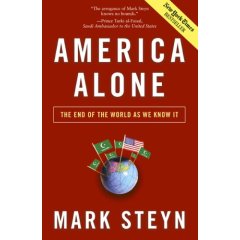Have we in the cultural west, in the midst of our technological advancement, nurtured a generation of self-absorbed humans? Have we, by providing what is probably the most Utopian existence known to mankind, also laid the foundations for a nation of teenage adults?
Consider what author Vicki Courtney details on her blog Virtue Alert. In The Bribery (part one), she describes her surprise at discovering her college-age son’s dating habits, or lack thereof. Per Courtney,
Yesterday, I was writing away on the culture’s attitudes about dating for my new book and feeling disturbed that many of our Christian youth have conformed to the culture’s mindset. Now, let me just state that I am all for “hanging out in groups” in the middle and high school years. In fact, I encouraged it with my own children and we even added a gameroom onto our house to provide a safe “hang-out” place. I don’t personally feel that our teens are ready to tackle the responsibility of being in a serious “dating” relationship that often ushers in physical temptations, emotional trauma (and drama), and so forth…
…
I share this background for the sake of revealing a downside to this “hang-out-with-your-friends” model that many Christian parents have endorsed in their homes (including myself). As I was researching for my book, I began to see evidence of a trend where dating is all but extinct on college campuses, having instead been replaced by “hanging-out” or “hooking-up.” I have written on this in the past in my “Your Girl” book and grieved that many of our daughters will fail to experience the excitement of an old fashioned “date.” You know the kind where the boy works up his nerve to call, drives over to pick-up his date, takes his date out to dinner/movie and actually picks up the tab, and then politely drops his date off at her doorstep with no expectation of anything further…
Upon further reflection, Courtney decides to ask her son about the dating methodologies he and his friends practice. From her conversation,
Mom: “Hmmm….So, let me ask you this: Let’s say you are hanging out with your “group”… and you meet a girl in the “group” and you think, ‘Wow, I might want to get to know her better.’ So, what do you do?”
College boy: “Uh, well I had that happen with one girl, so I just texted her later to see if she wanted to ‘hang-out’ and just come over and watch The Office, or something.”
Mom: (beginning to hyperventilate) “Wait a minute. Let me get this straight: You asked her to get in her car and drive over to your apartment to watch an episode of The Office? And then, at the end of the evening, she got into her car and drove her little self home (insert sarcastic tone, here)?”
College boy: “Yeah, pretty much.”
Mom: (praying out loud) “Lord Jesus, where did I go wrong?” (to son): “And at what point in the process do you ask her out on a real-live date?”
College boy: “I don’t know. Nobody really expects that.”
I’m wondering. If nobody really expects to be asked out on a real date, then what would be the basis for developing an intimate (in the encompassing and not the erotic sense) relationship? Certainly, in times past there has been that convenient little concept known as the “arranged marriage”, yet, in today’s “my rights above everything else” culture I guess we (as men) simply text the particular female we’re interested in, offering them the privilege of our company, at our place of residence, as long as they provide their own transportation. How much longer until the female in question is also asked (by text) to stop by the local Chinese take-out, so as to provide the evening’s nourishment?
Courtney rightly questions whether or not Christian women should take a stand and expect Christian men to act like men and actually ask them out on a date, pick them up, take them somewhere, and drop them off at home. Unfortunately, she is finding out that those women who do take such a stand often find themselves left at home, alone, because the men males simply find other women who are all too ready to acquiesce to the “text date”.
Many homeschoolers have been promoting the notion that there are no “teenagers” in our midst. Rather, there are “young adults”. While the cultural notion of “teenager” mandates that they be adolescent in nature, seeking fun, and having little or no responsibility, the notion of “young adult” extols the virtue of responsibility and how it ties in with privileges. The young adult is given responsibility which, in turn, leads to earned privileges. Fail at the responsibility, lose the privileges. Excel at the responsibility, earn more privileges. It kind of sounds like – real life – doesn’t it?
Interestingly enough, this notion of the myth of adolescence is gaining popularity in secular culture. It is a topic I hope to discuss, at length, in the future.
In the meantime, I leave you with a YouTube clip, providing an extreme example of what can become of a young adult-age male in a teenager-based culture. (HT: Ron’s Bloviating)
[youtube]http://www.youtube.com/watch?v=X2EDtxEumFI[/youtube]

 The subtitle of Steyn’s book is The end of the world as we know it. On the cover we see a globe, dotted with flags of Islam, and one lonely American flag. The front cover recommendation quote is, “The arrogance of Mark Steyn knows no bounds.” – Prince Turki al-Faisal, Saudi Ambassador to the United States.
The subtitle of Steyn’s book is The end of the world as we know it. On the cover we see a globe, dotted with flags of Islam, and one lonely American flag. The front cover recommendation quote is, “The arrogance of Mark Steyn knows no bounds.” – Prince Turki al-Faisal, Saudi Ambassador to the United States.